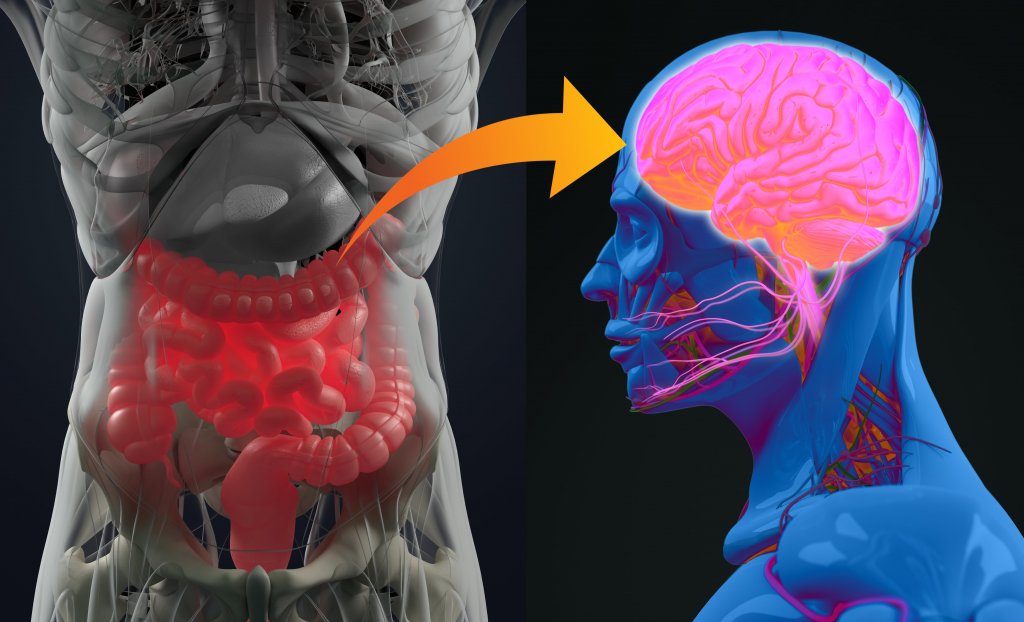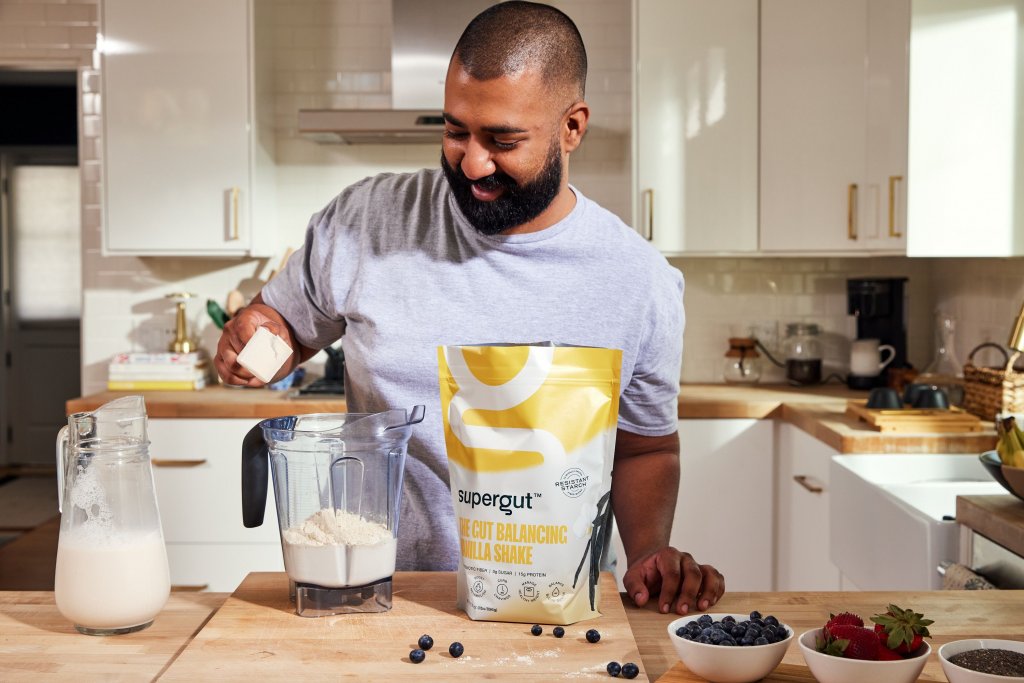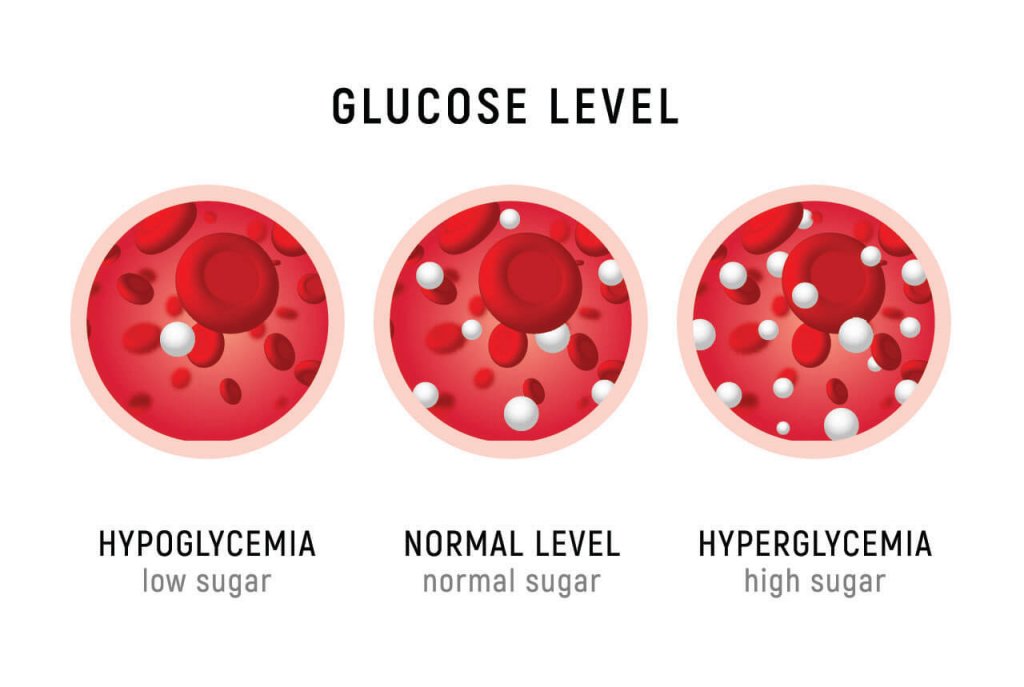The Gut-Brain Axis is a communication superhighway that keeps the gut microbes and brain in sync. Consisting of nerves (like the vagus nerve), molecules, and immune cells, the gut-brain connection is responsible for a whole host of things that scientists are still seeking to fully understand.
It’s a fascinating space. Can gut bacteria influence mood? Can they affect our sleep?
In a recent webinar workshop, we sat down with Supergut’s Chief Medical & Scientific Officer, Dr. Chris Damman, to chat about the Gut-Brain Axis — and how the gut influences everything from mental health to mood, sleep, and more. (You can see a full video recording of this workshop below!)
After the discussion, we opened up the floor for virtual attendees to ask their own questions. And while we were able to address a number of these questions live at the time, there were some we didn’t get to.
Here, we’re resurfacing 12 questions you all asked during our Gut-Brain Axis Workshop. We hope these answers will help clarify some things!
There is one study listed on the Supergut website as a reference for the scientific basis behind Supergut. Are there any other publications that illustrate the rationale for the Supergut products?
There is a wealth of literature that supports the ingredients in Supergut, including both resistant starch and oat beta-glucan. These studies were the foundation for developing the Supergut product. In fact, we combed through 200+ clinical studies to create our patented resistant starch fiber blend.
Here is the full reference list of clinical studies and which benefit categories they were tested against:
- Blood Sugar — 104 studies
- Weight Loss — 53 studies
- Gut Health & Microbiome — 27 studies
- Cholesterol — 20 studies
Can migraines be related to the gut?

Indeed, migraines can be related to the gut. Studies have shown that people who regularly experience gastrointestinal symptoms have a higher prevalence of headaches. Some foods, for example, will trigger migraines in certain people.
There is also a type of migraine called an “abdominal migraine” that has similar dietary triggers, underlying causes, and family risk factors. Finding those triggers, and treating digestive conditions may help reduce the frequency and severity of migraines.
Will the elimination of Daylight Savings help with our gut health, or too minimal of an adjustment?
Yes! Time changes tamper with the natural circadian rhythms of our bodies. These functions help our brain signal that it’s time to go to sleep, but they also control countless other organ systems throughout the human body and our gut!
When those rhythms get interrupted — such as when we travel across time zones, work rotating shifts, and twice a year when the clocks move forward and back — our bodies have a stress response.
I’ve struggled with SIBO [Small Intestinal Bacterial Overgrowth] for the last 2 years and have a hard time digesting oats and legumes. What is your advice on how to get my gut back to accepting these foods?
We would recommend that you coordinate with the doctor that provided the diagnosis of SIBO. One idea to complement their advice would be to consider regularly drinking herbal teas. There is some literature to support that certain herbs can help with SIBO. It is not likely to hurt and could potentially help, although the evidence is limited. At the very least, you’ll enjoy some delicious tea.
Is there evidence that the sweetener used in the shakes has no negative (long-term) effects?

One of the main sweeteners in Supergut shakes is Allulose. Allulose is a natural sugar found in foods like raisins and prunes. Research to date supports that it can lower blood sugar, unlike many other artificial sweeteners.
Does the timing of probiotic foods matter (ex: should I eat yogurt on an empty stomach when my stomach has less acid)?
Some researchers have shown that some types of probiotics may survive better in our gut if we take them before meals. But timing isn’t actually the most important thing. Consistency is the key. We should focus on increasing our probiotic intake from food each day more than just the time.
Is Supergut Fiber Mix similar to something like UCAN [a starch mix meant to boost energy]? I have used UCAN prior to rides as a way to increase carb load without spiking blood sugar.
These two products were developed for different purposes and have different fibers present in them. Supergut is not intended for sustained carb loading but may help prevent pre-exercise reactive hypoglycemia and could potentially be used for post-exercise refueling.
I’ve had my terminal ileum and appendix removed and am prone to bile acid malabsorption. Other than increasing fiber intake, what else can I do?
Increasing your fiber intake is a great idea with some support from the literature. For other advice, we would recommend you talk with your primary provider.
You mentioned the benefits of fermented foods…what about fermented drinks i.e. Mead?? (Alcoholic drink)
Alcohol is indeed a fermented food. But current CDC guidelines, based on the latest evidence, suggest choosing between abstaining from drinking and/or drinking in moderation: “Limiting intake to 2 drinks or less in a day for men or 1 drink or less in a day for women, on days when alcohol is consumed.”
I am not overweight but have Type 2 diabetes. Do the Supergut shakes help with the reduction of blood sugar levels?

Yes! The meticulously sourced prebiotic fiber blend in Supergut is clinically shown in hundreds of studies to help regulate blood sugar naturally. It does so in part by feeding the beneficial bacteria in your gut microbiome, which can help regulate your metabolic health and insulin sensitivity. Plus, because resistant starch resists digestion, this means you won’t see blood sugar spikes typical of most other kinds of simple carbohydrates.
Do you recommend taking a probiotic supplement during and after a course of antibiotics?
The current evidence that supports the use of probiotics to prevent antibiotic-associated diarrhea is weak. The quality of probiotics vary from manufacturer to manufacturer, but you can discuss with your doctor whether it makes sense to take a probiotic at the same time as a course of antibiotics. In addition, you might consider in your every day diet increasing fermented foods which have been shown to increase diversity in your gut.
Can you speak to the ingredients in the bars? Is it ok to eat one every few days? Is there a downside to the ingredients?

We carefully and meticulously scour the globe for the absolute best, all-natural ingredients that have clinically-validated health benefits. And we hand-select ingredients like unripened green bananas for their incredible ability to balance the gut microbiome, and optimize weight, blood sugar and more.
In terms of the frequency of eating our bars, it’s more than okay to eat a Supergut bar every few days. In fact, you could even eat one per day to help fill in fiber gaps in your diet. Remember, the average American consumes about half of the daily recommended amount of dietary fiber. Supergut Bars have 10g of prebiotic fiber per serving, which will go a long way to helping you reach your goals.
In terms of “downsides” to the ingredients, dietary fiber can sometimes cause digestion issues. Thankfully, resistant starch is a fiber well-known for being easier on the gut than others. But still, it can sometimes take some time to re-train your gut to handle fiber. If you experience any digestion issues, just know this is a sign your gut is healing!
——-
We hope this was helpful! If ever you have any additional questions about anything related to gut health, the microbiome, or any Supergut products, please feel free to join the Supergut Community on Facebook!





